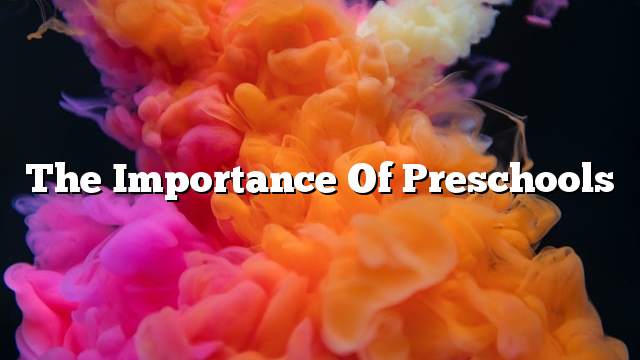Kindergarten
The kindergarten stage is one of the most important educational institutions that works to properly equip and rehabilitate children in order to reduce the child’s feeling that he has suddenly moved from the home environment to the school environment. It gives him full freedom to carry out all his activities and reveals his talents, It provides children with life skills and practical experience, aged between three and six years.
The importance of kindergartens
- Give the child a sense of pleasure in an atmosphere of freedom and free movement.
- Give children useful and different information through play and fun.
- Promote positive values, ethics and behaviors in children.
- Promote self-confidence and self-reliance in children.
- Teaching children has simple responsibilities in their lives.
- Encourage children and motivate their positive motivations for love of work.
- Developing multiple skills and creativity in children.
- Training children to work in groups and to collaborate with their colleagues.
- To rid children of problems such as: shyness, isolation, and aggression.
- Eliminate repression by blowing up and exploiting the energies stored in children.
- Consolidate the relationship between the child and the educator by working with him individually.
The educational role of kindergartens
Education aims to build a good person who participates in the construction of the structure of his homeland through his balanced and integrated personality. The educational role of kindergarten is summarized in several points, including:
- Build a child’s personality from all aspects of physical, mental, linguistic, emotional, social, and kinetic intelligence.
- Assisting the child to express himself using verbal symbols.
- Give the child space to express and develop his imagination.
- Incorporate the child with other children of the same age but from different environments.
- Promote the child’s respect for rights, duties and respect for property.
- Give the child problem solving skills.
- Training the child to enroll in formal education and giving him a range of terms and skills related to religion, language, numeracy, drawing, music and health.
- Facilitates the smooth transition from home to school after the age of six.
- Strengthen the child’s self-confidence as a person with abilities and talents.
- Bridging the understanding with the family in the process of raising children.
The progress of countries and communities is determined by the degree of interest and development that is reflected in their educational plans and their ability to achieve harmony with the developments of the age and its requirements. Therefore, it is necessary to work hard to develop the curricula of kindergartens in accordance with the requirements of children and with the updated educational updates.
